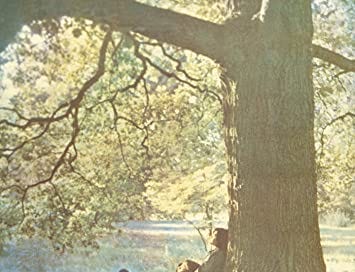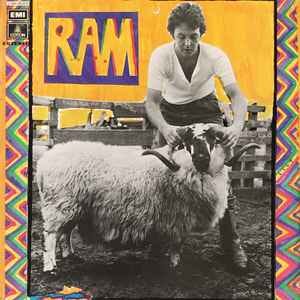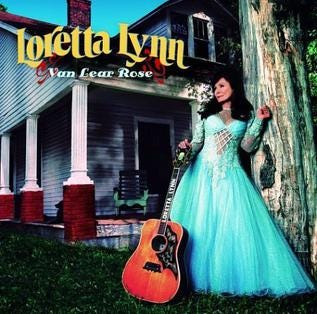John Lennon Grieves the Beatles
John Lennon
Born October 9, 1940
Pick A Career
John Lennon/Plastic Ono Band, John Lennon. Apple, 1970.
Copper Magazine, May 24, 2021
listen to audio narration here (13 mins)
THE 1970s DAWNED with a blistering hangover as the 1960s bled right into the new decade. On September 13, 1969, just before Abbey Road began dominating end-of-’60s radio, John Lennon sang at the Toronto Rock and Roll Revival, an early 1950s festival. He called his pickup group the Plastic Ono Band: Eric Clapton (lead guitar), Klaus Voorman (bass) and Alan White (drums). They launched with standards, “Blue Suede Shoes, “Money,” and then “Dizzy Miss Lizzy,” before turning to Lennon’s “Yer Blues,” an unreleased “Cold Turkey,” and “Give Peace a Chance,” his anti-war chant. Then he turned the stage over to his Japanese-American wife, Yoko Ono, who screamed against Lennon’s guitar feedback for almost half an hour. It stupefied the audience. One week later, at an Apple business meeting in London, Lennon told the other Beatles he wanted a “divorce.” However, Lennon agreed to keep a lid on his departure—they were in the middle of contract negotiations, and if word got out, they could lose leverage. From that point on, the chronology went extremely fuzzy for most fans, as the overlap between Beatles group releases overlapped with the members’ early solo records. Plans progressed for a Let It Be album and film early in 1970 (shot in January 1969) as the breakup remained a secret.
Alongside all the racist hate mail John and Yoko received at their home that season, a book arrived, called The Primal Scream, by a California therapist named Arthur Janov. It had an unusual pull for Lennon, who found himself agonizing. (“You seem to need them even more than they need you,” his first wife Cynthia once remarked.) He spent the summer of 1970 in workshops with Janov in California, where he bereaved his childhood (both parents abandoning him to an Auntie), considered the nature of God, and chased Ono’s first husband Tony Cox around seeking custody of Yoko’s daughter Kyoko. Then, on August 1, Ono miscarried a second Lennon child.
In America, the violence continued, as if 1968 had never ended. The week after Nixon expanded the Vietnam war with an illegal incursion into Cambodia, the National Guard killed four non-violent protesters at Kent State (May 4). In April, without consulting the other three, McCartney put out a press release the week his solo debut, McCartney, appeared, announcing that he was leaving the band. Headlines flared around the world. It felt like a bad joke: this utopian ensemble, that made rock and roll a powerfully redemptive global force, crash-landing into tabloid lawsuits and countersuits. Along with secretly buying up stock in the Lennon-McCartney publishing company (Northern Songs Ltd) behind Lennon’s back in the spring of 1969, McCartney’s move compounded his betrayals in Lennon’s mind. The greatest songwriting team of the era now entered its doom phase of litigation, recriminations through song, and a public fallout that deflated their idealized brotherhood.
—read more Pick A Career at www.timrileyauthor.com
Big Beatle news: Revolver deluxe box (out October 28). Headline: "Rain" at the original tempo. Twisterella. No way to prepare for this, but if you haven't heard "Fast Ram," sit down and plug in right away: McCartney's cathedral to whimsy has never made this much sense. It's like watching Coyote catch the bird, or pressing the UP button and plunging deliriously downard. Your future self thanks you.
original title: John Ono Lennon: The Imaginary American
“…Paradoxically, what Riley calls Lennon’s ‘crumbling inner life’ gave vent to some of his finest mid-period Beatles songs: the ‘gleaming arrogance of “And Your Bird Can Sing,” the alternate reality of “Rain” and the shimmering cynicism of “She Said She Said…”’
—Mark Edmunds in The Sunday Times
see Lennon: The Man, the Myth, the Music—The Definitive Life and Tim's other books at www.timrileyauthor.com
Loretta Lynn died on October 4th. See the newsletter's tribute from last spring on Van Lear Rose. Click here to read that article, Punk's Revenge. See also: Hanif Abdurraqib's New York Times tribute.
more on John Lennon
John Lennon/Plastic Ono Band, John Lennon. Apple, 1970. [listen on Apple Music or Spotify]
Beatles Infographics
clips
A Rock Critic's Guide to Classical Music
Booked on Rock podcast: history, authorship, and the deluge
Twitter likes
coming soon
Lenny Kaye on Lightning Strikes
Jason Gross, editor of Perfect Sound Forever
Simone Dinnerstein, pianist
newsletters
Music Journalism Insider
Sidecar: Aquarium Drunkard
Burning Ambulance: On the Corner at 50
More newsletters
riley rock report
twitter feed: @timrileyauthor
Buzzsprout: audio segments
RSS: https://feeds.buzzsprout.com/1923124.rss








